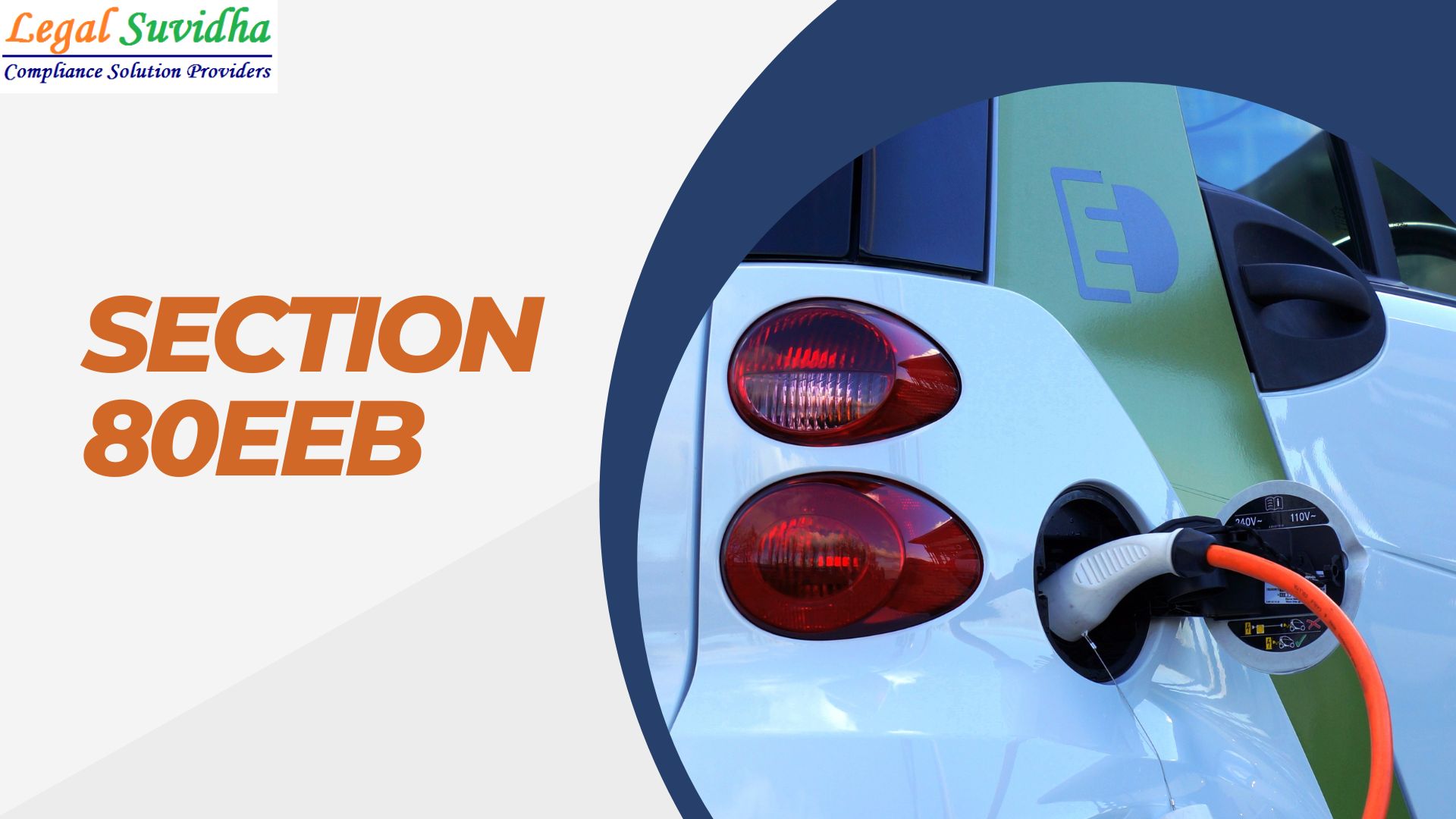SECTION 80EEB: DEDUCTION IN RESPECT OF ELECTRIC VEHICLE
During the Union Budget 2019, the government has announced an incentive for purchase electric vehicle. The Finance Minister has stated that advanced battery and registered e-vehicles will be incentivised under the scheme. During this budget insertion new section 80EEB has been introduced allowing a deduction for interest paid on loan taken for the purchase of electric vehicles from the AY 2020-21.
Who is eligible to claim deduction under section 80EEB?
An Individual who has taken a loan for purchase of E-Vehicle from any Financial Institution and who has never owned an E-vehicle can avail such tax relief. Further, Interest payable on such loan would qualify for deduction under Section 80EEB.
What are the Conditions for claiming the deduction?
- The Assessee should be an Individual (i.e. Deduction not available to any other taxpayer)
- Loan should be taken for purchase of an E-vehicle for personal use or business use. In case of business use any interest payment above Rs.1,50,000/- can be claimed as a business expense. To claim as a business expense, it is necessary that vehicle should be registered in the name of the owner or the business enterprise.
- Loan should be sanctioning during the period between 01.04.2019 and 31.03.2023.
- Loan should be sanctioned by a FI(i.e bank or specified NBFCs).
Period of Benefit:
The benefit of deduction under this section would be available from A.Y 2020-2021 and subsequent assessment years till the repayment of loan continues.
Not just the Income tax benefit, an EV purchase will also bring you tax benefit on GST, with the government having cut the rate to 5% from the earlier 12%.
Quantum of deduction
Interest payable, subject to a maximum of Rs.1,50,000/- and such Interest would not be allowed as deduction under any other provision of the Act for the same or any other assessment year.
Further note that deduction is available only on Interest paid not on Principal payment.
Do note that an individual taxpayer should obtain the interest paid certificate and keep the necessary documents such as tax invoice and loan documents handy at the time of filing of the return.







